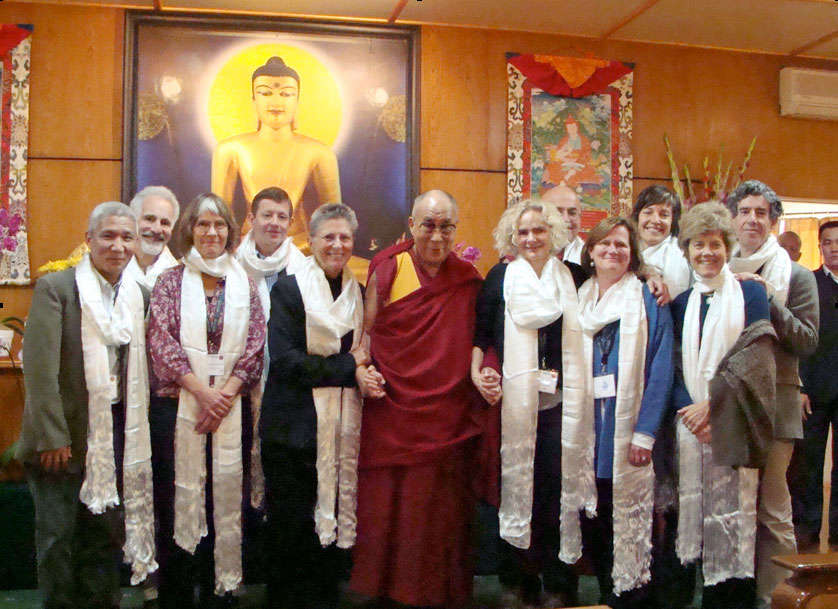Recently, I had the privilege of visiting Dharamsala, India, for a dialogue with His Holiness the Dalai Lama about addiction science, as part of a five-day conference at his Mind and Life Institute. I was very impressed at the Tibetan Buddhist leader’s personal interest in the brain, and in his desire to convene a small group of scientists from around the world along with Buddhist contemplatives and other scholars to discuss the topic of craving, desire, and addiction.
 Dr. Nora Volkow with the Dalai Lama and other participants in the Mind and Life Conference on Craving, Desire and Addiction in Dharamsala, India
Dr. Nora Volkow with the Dalai Lama and other participants in the Mind and Life Conference on Craving, Desire and Addiction in Dharamsala, IndiaFor Buddhists, craving is the source of human suffering; the misery of those ruled by extreme cravings for drugs is just an extreme form of the attachment to material things that compromises any person’s happiness. The Dalai Lama was interested to learn what I had to say about dopamine and the addicted brain, and the loss of self-control that comes when drugs change crucial brain circuits involved in emotion, pleasure, memory, and judgment.
The Dalai Lama put these brain changes in terms of the “action cycle” of karma in Buddhist belief: Once you make a choice to use drugs, consequences are unavoidable. The powerful changes that occur with the abuse of drugs reinforced the Dalai Lama’s belief that it is necessary to “put up the barrier before the floods come”—that is, to focus as much as possible on prevention. His feeling is that education is central to preventing drug use.
He stressed that education must create an environment in which children will have the opportunity to develop themselves, and young people should be taught in such a way that their brains can achieve their full capacities. The environment should also instill a sense of purpose and connectedness, rather than the materialistic values that, he says, cannot produce happiness. “We must bring to children a sense of wonderment about the world, rather than so much negativity,” he said. “And we must bring more simplicity.”
The Dalai Lama said that Buddhism can help best with this goal of preventing drug abuse, both through training the brain to balance emotions and self-restraint (for instance through meditation) and through promoting education and working to create a less materialistic society. He acknowledged that once a person becomes addicted, Buddhism may have less to offer, and said that medical science may be the best solution to treating their disease.
It was gratifying to see the powerful common ground between the Buddhist approach to suffering and addiction science. Both perspectives agree that prevention is critically important and that the emotional part of the brain is crucial to understanding what can go wrong. It led me to think about what we might learn from a discipline like Buddhism about training the brain—particularly given recent research showing benefits of meditation in smoking reduction—as well as how we might devise new neuroscience-based technologies to assist in strengthening self-control circuits.
Whether coming from the perspective of neuroscience or meditation, our aim is to understand how we can encourage self-control, manage our emotions, and offer children a purposeful life that will prevent substance abuse.
You can watch a video of my conversation with the Dalai Lama here: https://www.dalailama.com/videos/mind-and-life-xxvii-craving-desire-and-addiction, View the Day 3 Morning video.
